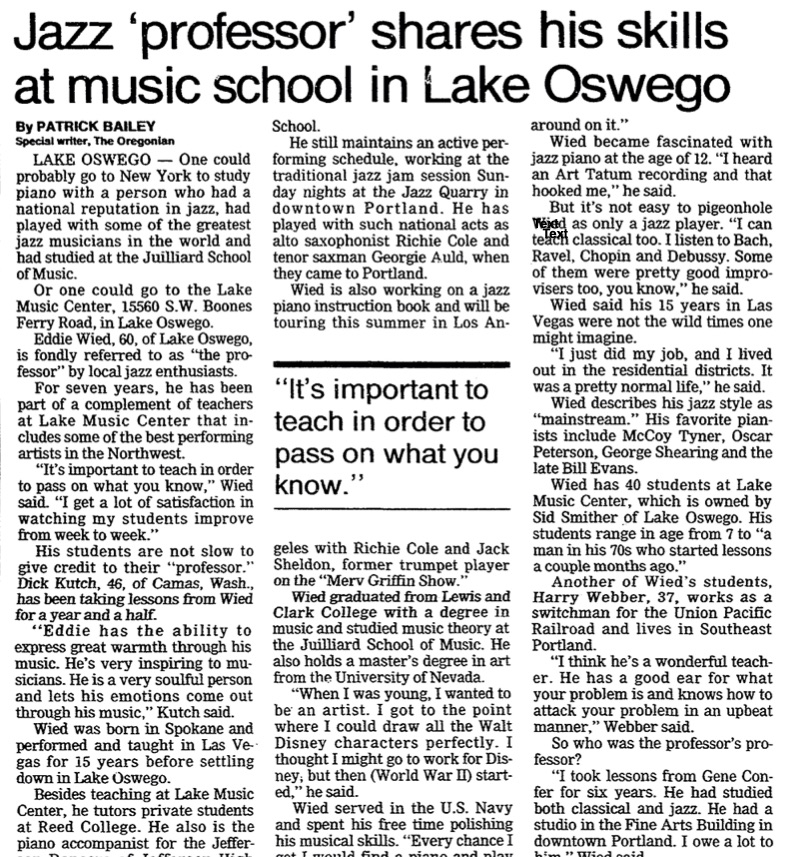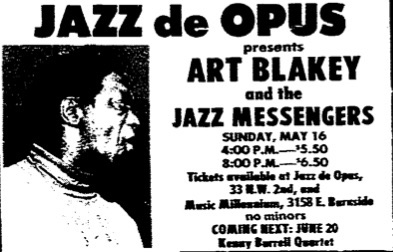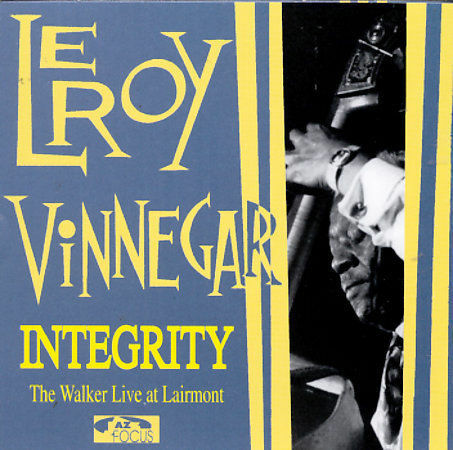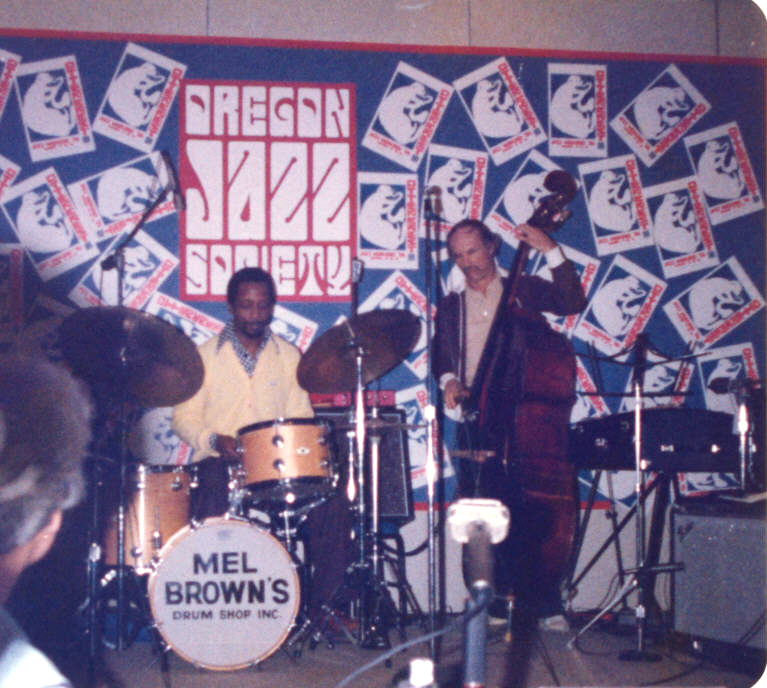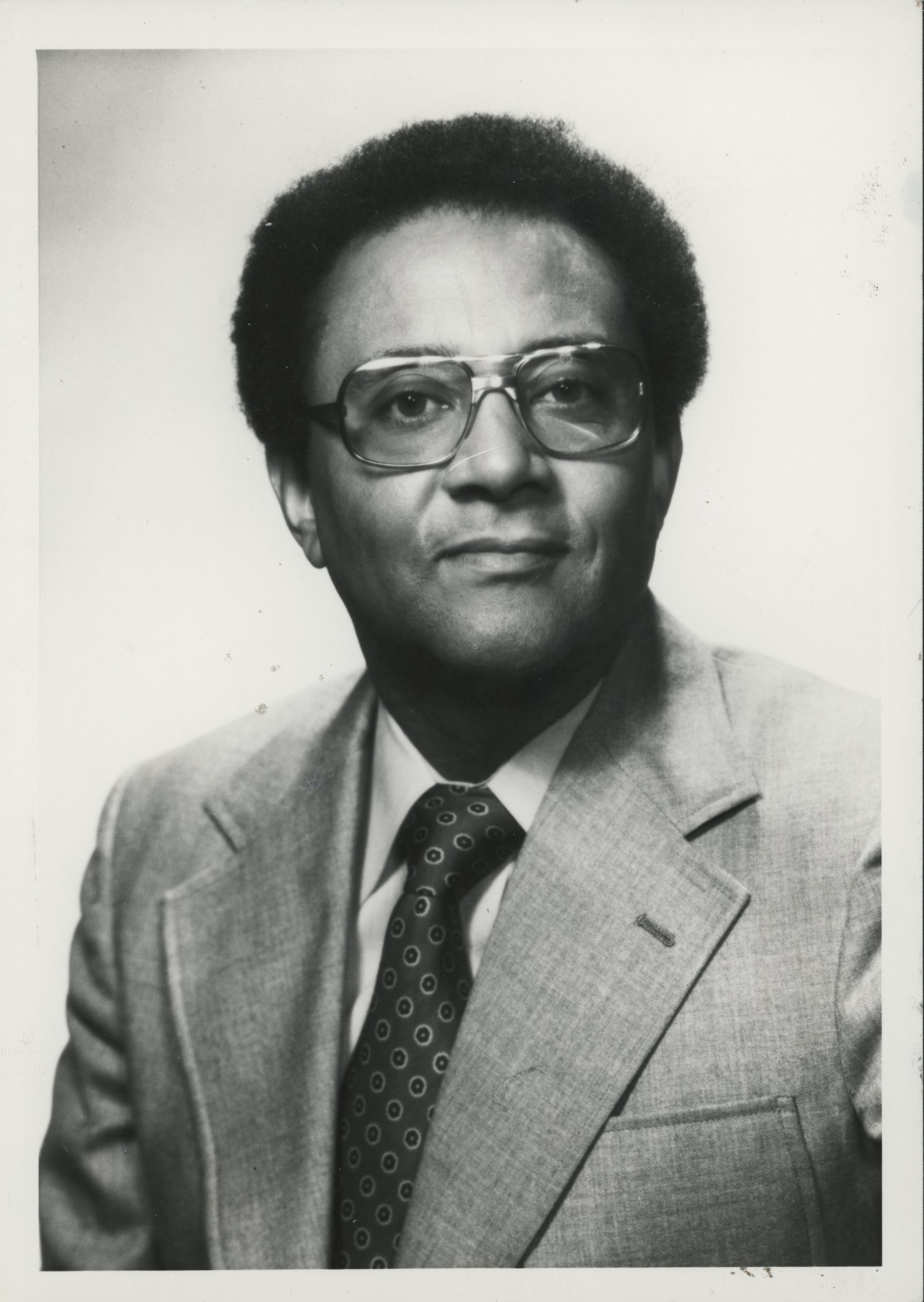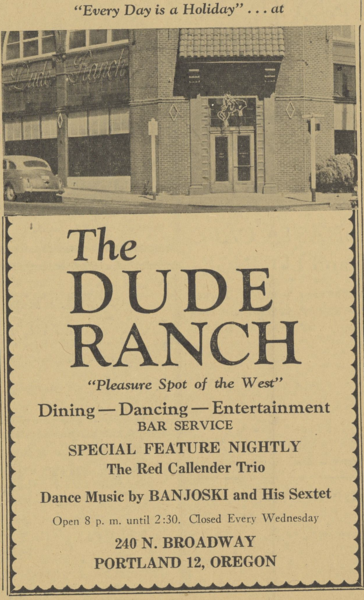Known as “the Professor,” jazz pianist Eddie Wied was an influential teacher and exemplary player during the years he lived in Portland. His work as a teacher and mentor to younger players, in addition to his regular nightclub performances, provided a crucial link between Portland’s jazz past and the jazz scene in the twenty-first century.
During the heyday of modern jazz in the 1940s and 1950s, Wied served his apprenticeship in the African American neighborhood along Northeast Williams Avenue. As a mature player, he remained rooted in the bebop of the 1940s. The intelligence and fluidity of his approach were reminiscent of modernist piano players such as Hank Jones and Tommy Flanagan, but his favorite pianist was Jimmy Rowles, a personal friend from Spokane, Wied’s hometown.
After playing in a Navy band during World War II, Wied moved to Portland to work with his brother, bassist Al Wied. He studied with pianist and teacher Gene Confer, whose instruction influenced a number of prominent Portland-based jazz pianists. He was also trained classically, and in the 1980s he studied with Katherine George, pianist with the Oregon Symphony. At the time, Wied was considered to be the top jazz piano teacher in Portland.
Wied received a bachelor’s degree from Lewis & Clark College in Portland in 1959, attended Juilliard School of Music in New York, and earned a master’s degree in art from the University of Nevada in 1974. He lived for fifteen years in Las Vegas, where he was the pianist for the jazz vocal group, the Modernaires (1960-1966); he toured with the popular group and appeared with them for four months on The Johnny Carson Show. When travel took him to New York City, he performed there with tap-dance great Honi Coles, and in Las Vegas he worked with Bob Crosby and the Bobcats.
Returning to Portland in the 1970s, Wied led The Sky Trio at the Jazz Quarry, a club on Southwest Jefferson Street in downtown Portland, where he accompanied many national jazz stars, including Bobby Hutcherson, Jack Sheldon, and Red Holloway. After the club closed in 1987, he played regularly at The Hobbit in southeast Portland with drummer Mel Brown and bassist Leroy Vinnegar, who had moved to Portland from Los Angeles. In the 1990s, Wied became a member of The Original Cats, whose members had formerly played on Williams Avenue. He also began traveling regularly to Italy.
Wied’s first album as a leader was Eddie Wied in Italy: It’s All Right with Me (1994). He recorded his second album, The Street Dancer, with Italian resident and former student Giovanni Ciccarelli, and he mentored local professionals such as Mark Simon and Johnny Martin. He also served as pianist for the Jefferson (High School) Dancers. He was “the consummate accompanist,” said vocalist Nola Bogle, who sang with him in the 1970s. “He was an extremely schooled musician who really listened to vocalists.”
Wied received the Leroy Vinnegar Jazz Legacy Award from the Leroy Vinnegar Jazz Institute at Portland State University a month before he died in June 2007.
-
![]()
Oregonian news article featuring Eddie Wied, March 26, 1987.
Courtesy The Oregonian
Related Entries
-
![Cleve Williams (1930-2007)]()
Cleve Williams (1930-2007)
Trombonist and singer Cleveland "Cleve" Williams Jr. was an important m…
-
![Jazz de Opus]()
Jazz de Opus
One of the definitive nightclubs in the Portland jazz scene, Jazz de Op…
-
![Leroy Vinnegar (1928 – 1999)]()
Leroy Vinnegar (1928 – 1999)
Though he spent only the last thirteen years of a long career in Portla…
-
![Mel Brown (1944-)]()
Mel Brown (1944-)
If one had to choose a single musician to represent the history of jazz…
-
![Richard “Dick” Bogle (1930–2010)]()
Richard “Dick” Bogle (1930–2010)
Dick Bogle was a multi-talented Oregonian and humanitarian who dedicate…
-
!["Sweet Baby" James Benton (1930-2016)]()
"Sweet Baby" James Benton (1930-2016)
James Benton has been a singer of jazz, blues, and R&B; during two dist…
-
![The Dude Ranch]()
The Dude Ranch
The Dude Ranch was Portland’s premier jazz venue in the days just after…
Related Historical Records
Map This on the Oregon History WayFinder
The Oregon History Wayfinder is an interactive map that identifies significant places, people, and events in Oregon history.
Further Reading
Dietsche, Bob. Jumptown: the Golden Years of Portland Jazz. Corvallis: Oregon State University Press, 2005.
Lee, Deborah. "The Eddie Wied Story." Jazzscene magazine (September, 1984).

